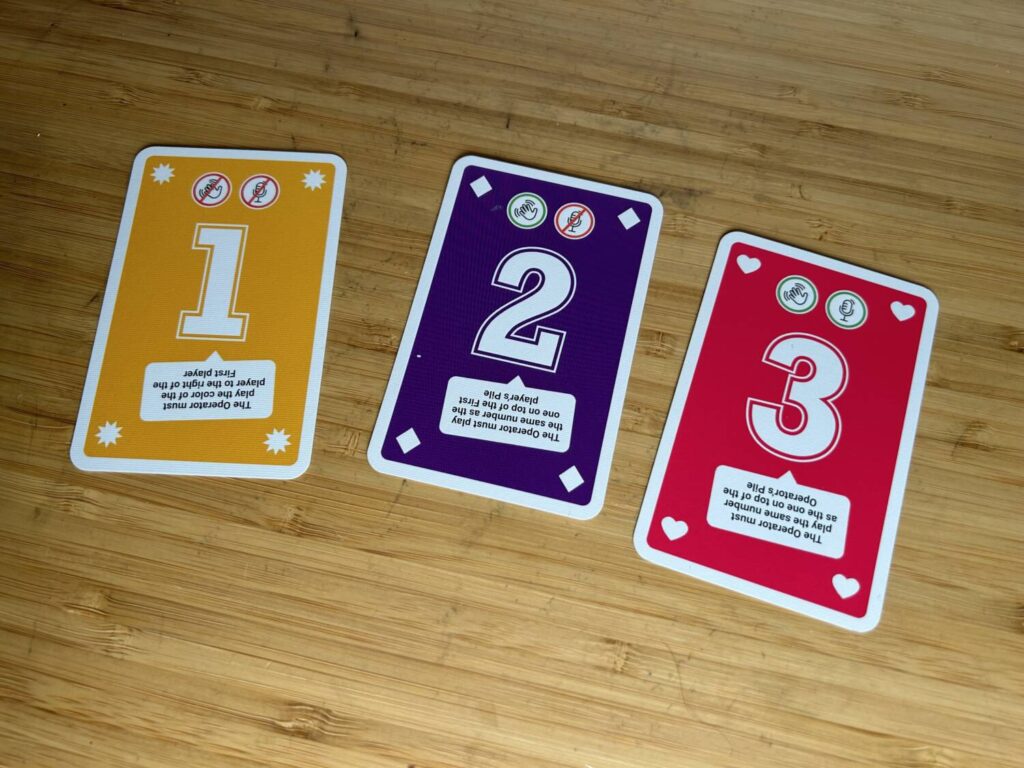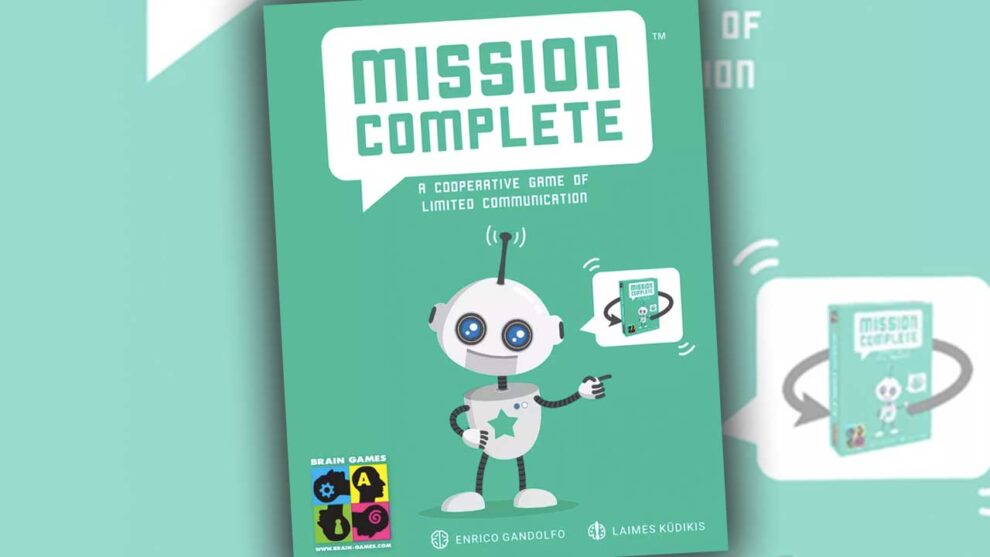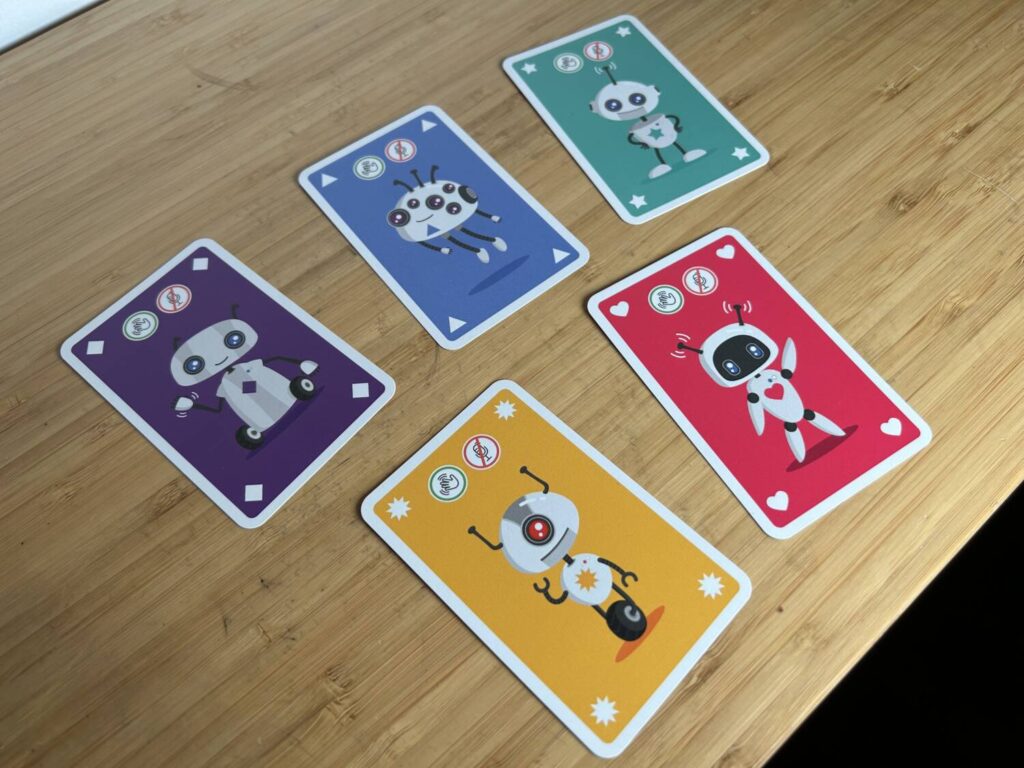Disclosure: Meeple Mountain received a free copy of this product in exchange for an honest, unbiased review. This review is not intended to be an endorsement.
I don’t know. I just don’t know.
Mission Briefing
I was looking forward to my first game of Mission Complete. It had a lot going for it. I love small card games. I love short games. I like cooperative games, and I love cooperative games with communication restrictions. The robot on the cover, by artist Laimės Kūdikis, is charming. The box is a great color. That last one probably reads as a joke, but I mean it. Mission Complete is a beautiful, inviting teal. I love unusual color choices in packaging.
You know what Mission Complete doesn’t have going for it? A good manual. This is an instant entrant into the Bad Manual Hall of Fame. When considering the ratio of game weight to difficulty learning, Mission Complete is probably the worst experience I’ve ever had with a game. It took us about 20 minutes to fully learn the rules by following the manual, and that’s for a game that ideally takes less than half an hour to play.
Mission Details
In fairness to whoever it was at Brain Games who created this manual, the ungainliness of the manual is not exclusively the manual’s fault. Having now played Mission Complete a handful of times, the word that springs to mind is “inelegant.”
Think of Mission Complete as a three-phase cycle. Every player gets a color. Every player gets a hand of three cards, which range in value from 1-3. Each card has a suit corresponding to a player color. Everyone plays a card in turn order. If everyone manages to play a card in a different suit, the group moves on to the next phase.
The first phase is determining the Operator. If everyone plays a different suit, the starting player draws the top card off the deck. The player whose color matches that card is the Operator, and receives the Robot card. Now, on to the second phase.
The second phase is about getting the Operator a task. If everyone plays a different suit, the Operator draws the top card off the deck, reads the task on the card, and keeps it facedown on the table.
It’s worth taking a moment here to talk about the main hook of Mission Complete. You are subject to constantly changing communication restrictions. Each time cards are played, unique suits or not, they are placed in front of the matching players. A 3 means you can communicate openly. A 2 means you can only gesture. A 1 means you must be silent in every sense.
The third phase is about completing the current task. If the Operator has a 3, they can tell the group what the task is. Once done successfully, the players return to the first phase. Do that three times before the deck runs out, and you win.

Mission Critical
This is a simple game. It shouldn’t have such a bad manual. There are minor language issues, but the fundamental problem relates to how the manual breaks down the overall structure of the game. Rather than dividing the game into phases as I did above, it tries to describe every round as being the same. The first and second phases (as I described them) are collapsed into a single phase as a part of every turn. It’s a manual you have to read all the way through to internalize, and then you have to reconstitute the information to relate it to other people. That’s the opposite of how this should work.
Beyond the manual, Mission Complete is clumsy. People are constantly fumbling around, trying to remember when or why they’re drawing a card. Worse than that, the game isn’t particularly compelling, even when everyone knows what they’re doing. At higher player counts, the hand size is so restrictive that you’ll often end up with no choice but to scrap an entire round by playing a suit somebody else has already put down. Communication only goes so far when your options are so limited.
So here we are, with a game that is at worst confusing and at best boring. Give it a miss.












Yea… will pass on this one.
Thanks for the warning. 🙂